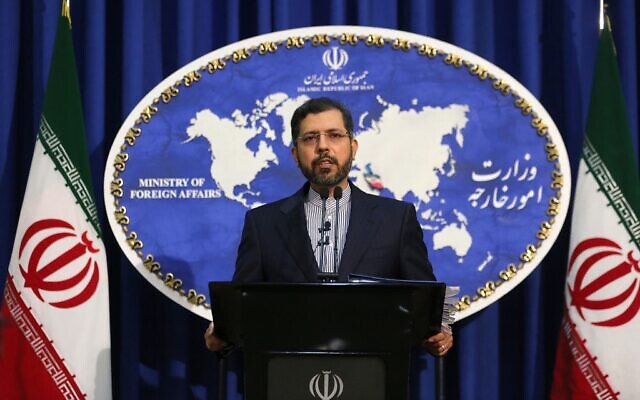On Monday, November 29, the seventh round of JCPOA negotiations kicked off in Vienna, having resumed after a five-month hiatus. The delegation of Ali Bagheri Kani submitted two draft resolutions, on sanctions and on the nuclear program, respectively. In sum, Iran is demanding a complete lifting of sanctions in exchange for halting its nuclear program.
Neither side appears to be expecting a breakthrough during this round of negotiations. Generally, the participants of the negotiation process – in broader terms – can be divided into three groups. On the one hand, there are realists – the Russians and the French. In a telephone conversation with Iranian President Raisi, Emmanuel Macron stressed that France’s priority in the negotiations is “Iran’s immediate return to compliance with the provisions of the JCPOA” as well as the return of the United States to the deal. He also called upon Tehran to immediately grant access to nuclear facilities to the IAEA to restore a transparent nuclear monitoring process. Mikhail Ulyanov, chairman of the Russian delegation noted in his turn that the resumption of the negotiations can be considered successful. Further, he even expressed optimism regarding the achievement of concrete results following the end of the current round of negotiations.
Washington, as well as Tehran itself, show restrained pessimism. The situation is complicated by the fact that the American delegation is partaking in the negotiations indirectly through its allies. While the delegation led by Robert Malley is concerned about Tehran’s rhetoric and the intensification of its nuclear activities, the latter expressed doubts about the intentions of its American and European colleagues. In turn, President Raisi stressed that Iran sent a “full team” to Vienna, which in his opinion reinforces Iranian commitments. However, Tehran’s true position remains unclear. Several sources claim that the outcome of the previous rounds will be taken as a starting point by Iran in the current negotiations. “A successful agreement is not far away if the European colleagues demonstrate their goodwill,” said Iranian Foreign Minister Amir Abdollahian. “We seek a sober, rational, and result-oriented dialogue.” At the same time, the head of the Iranian delegation, Ali Bagheri Kani, said that “nothing has been agreed until everything has been agreed”.
As the week of negotiations came to a close, the American delegation remained dissatisfied with the proposals put forward by Iran. According to Washington, Tehran is trying to force its partners to take make maximum concessions favorable to itself, avoiding any of the concessions on its part (including the ones made during the previous six rounds). The latter responds with similar claims. Delegations from the EU, China and Russia are similarly disenchanted by the results of the negotiations and “taken aback” by Tehran’s position.
Finally, Israel (not directly involved in the negotiation process) leads the alarmist camp. At a meeting on Thursday between Secretary of State Blinken and Prime Minister Bennett, the latter called on the United States and allies to cease negotiations and not succumb to the “nuclear blackmail” of Tehran. Next week, Israeli Defense Minister Benny Gantz is planning to pay a visit to his counterpart in Washington to discuss the Iranian nuclear issue, among other things.
Members of the British delegation feel distrust of the Iranian side, too, claiming that the current negotiations are “the last chance for Iran to sit down at the negotiating table.” The concerns of the United States and its allies stem from the IAEA’s announcing earlier that Iran had stepped up uranium enrichment activities at the Fordow nuclear facility. Previously, uranium enrichment at Fordow was carried out using the first-generation IR-1 reactors. Now, a cascade of 166 new IR-6 centrifuges has been launched; both are contrary to the provisions of the JCPOA. At the same time, according to the IAEA report, Iran agreed to increase the number of observation missions at its nuclear facilities as well as continue practical consultations.
The issue of the Iranian nuclear program was also touched upon during this year’s meeting of the OSCE Ministerial Council in Stockholm, Sweden. Together with Secretary of State Anthony Blinken, Sergey Lavrov stressed the need for “coordinated actions <…> to prevent a situation where Iran could become the owner of nuclear weapons”.

